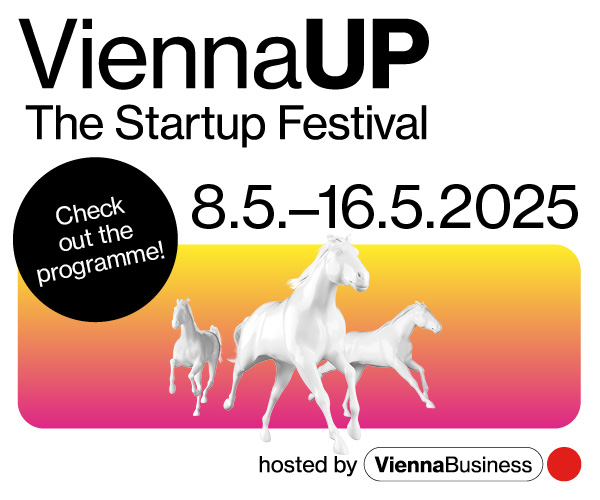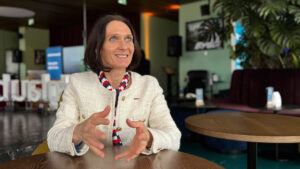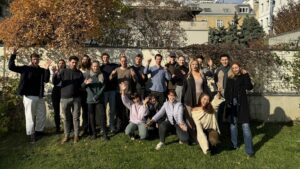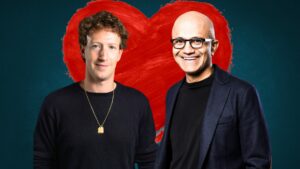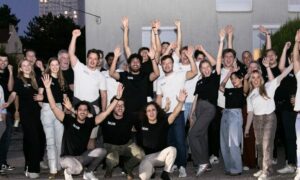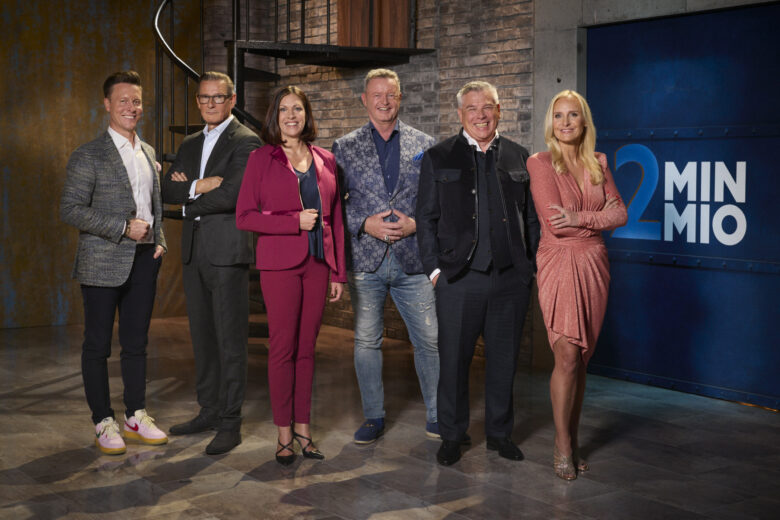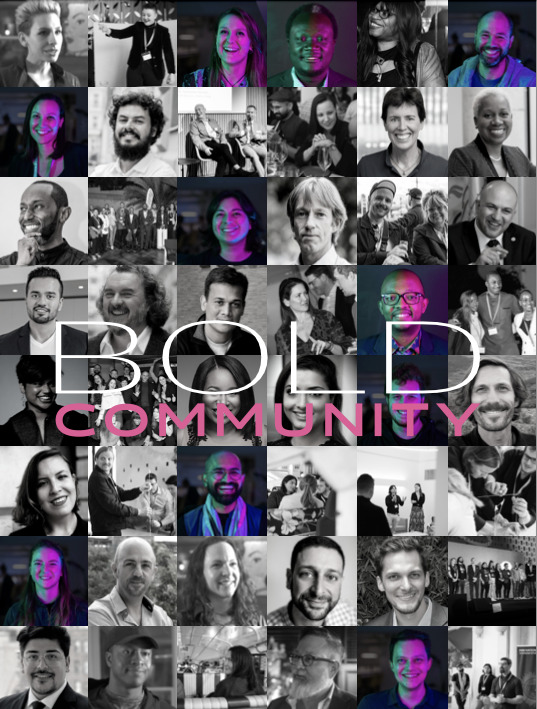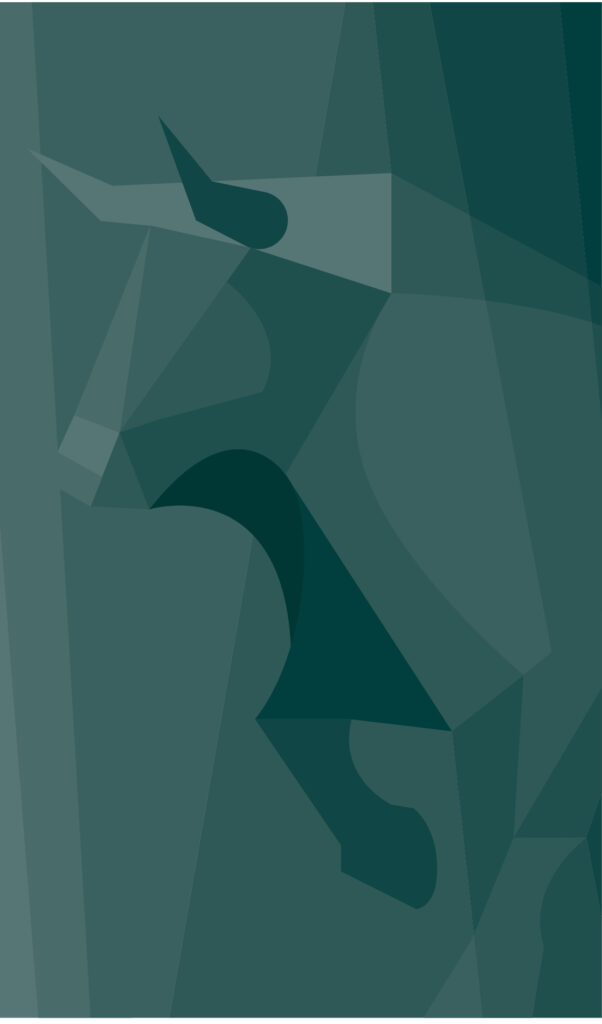How a Marxist libertarian thinks about sex, power and violence in the network society
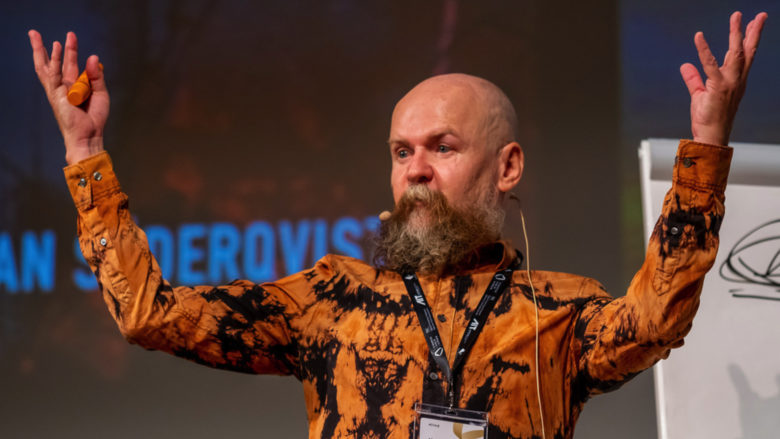
You might not agree with his views and theories on the network society and its interrelations with power, sex and violence. But when the Swedish cyber-philosopher Alexander Bard speaks (either on Twitter to 80.000 followers or at conferences like the European Forum Alpbach), his audience listens intently. Bard, with his bald head, long beard and energetic appearance, calls himself a Marxist libertarian who explores the effects of the internet age on human society. This year, he and his longtime partner in crime Jan Söderqvist will publish their fifth co-written book (Söderqvist and Bard, by the way, also founded a religious movement for atheists).
It is called „Digital Libido. Sex, Power And Violence In The Network Society“ and will be published in Swedish and English this autumn. Trending Topics sat down with Bard, who also is a musician, TV star and TED speaker – to speak about his new ideas, the Netocrats and the Consumtariat in the network society as well as his own role as a social media influencer.
Trending Topics: Please tell us: What is the big idea of your new book?
Alexander Bard: The big idea of the book is that we live in very confusing times. And the reason for that is that we human beings don´t change at all. We have been the same for tens of thousands of years at least. Civilization had no effect on us, genetically speaking. That means that humans are a constant throughout history, whereas technology is responsible for all change. Everything that happened in the 4.000 years of civilization is technological change. Technology is the extension of the human body. The chair you sit on the radio you listen to, the smartphone you use, technology is what changes over time. Technology is changing at such a rapid pace that we can´t really follow. It makes it very hard for people to understand the world they are living in.
So we did go back to Sigmund Freud his book “Civilization and Its Discontents” that he published in 1930. Freud can be such a brutal prophet, he saw World War II and Hitler and Stalin an millions of deaths coming. Today we see similarities between the times Freud lived in and today. We wanted to re-read Freud and to write a book Freud would have written if he lived in 2018.
What tells us Freud und libido about today?
Libido is a very Freudian expression. Libido is our sex drive, and the opposite of it is mortido, the death drive. It means that we want to live life with as minimal activities as possible. Freud says that most of us live that life, lives full of repetition and emptiness. He says that it is our default state, and just a few of us are in the libido state – those who are active, who want do be constructive, who want to expand. We wanted to find where the libido state is in our digital lives. We shockingly found that the vast majority in the Western world live a life full of mortido, a very infantilised life. Infantilization is the main pathology of contemporary society. We looked for 2 things that make us live like childs although we are over 30.
Those 2 things are the Western European welfare state and the American consumer society. Both have made us reluctant to do anything on our own. We always expect the state and the market to give us what we want at any given time. This is comparable to the first years in our lives when we are completely dependent on our mother´s tits. Instead of growing up and becoming phallic, meaning becoming autonomous, we see an increasing infantilized society.
Please give an example.
Over 25 percent of American people are obese. You see millions of overweight people who will die premature deaths because of heart diseases and other things. This is not an epidemic, this is a pathology. The just can´t stop eating, and if you can´t stop eating it is because you are just a child that wants to get fed all the time. This is one example of the infantilization of society. We asked ourselves: Where do the ideas come from that excuse that kind of behaviour? We call this whole ideological complex identitarianism.
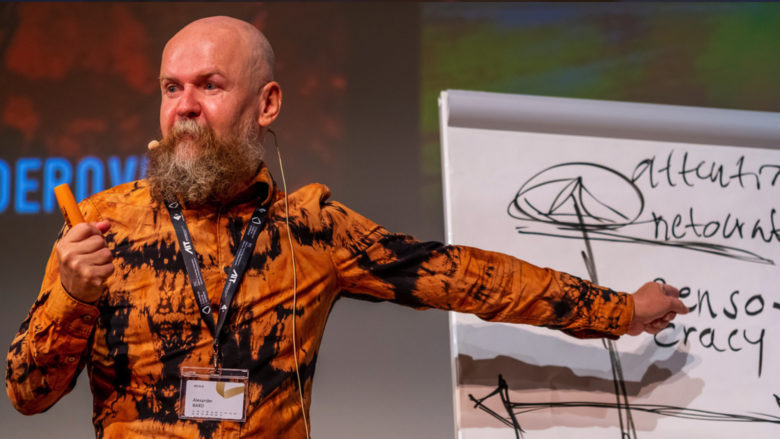
What´s the reason for this development?
The grand narratives we used to be told have disappeared. The grand nation state, the cities that we built, everything that we constructed in the past that made us look forward, all those ambitions to progress have disappeared. The American Dream is dead, the European Dream is dead, we just see an anarchic world where the internet just criss-crossed everything, all the institutions we believed in. We are feeling constantly lost, and we are going to an infantilised state to deal with that.
A lot of people would say that the state is gaining much more power these days with the help of the internet – for example China.
Well, we pay way more taxes than ever, but the state can´t live up to what we want. We show in the book that between 2010 and 2015 the number of psychiatric diagnoses among young people in Europe has quadrupled in only five years. And we are moving into an economy where we pay less taxes. The days of the welfare state are numbered. We just get more and more consumer goods. That´s so inhumane.
The subtitle of your book is “Sex, Power and Violence in the Network Society”. How are these 3 things used in the network society?
The internet makes information much more available than ever before. If you want to build a bomb, you can go online and learn it in a few hours. You can build your own drone and put the bomb on it, you can even 3D print your own gun in America. What´s going to see more masculine aggression. Take the Islamic State. It has nothing to do with Islam. As soon as you have large parts of young males with no work and purpose in their lives in the population, they gonna start building bombs, and they are gonna be very bitter and aggressive. This will increase and get worse, and we don´t see anything from preventing it.
Which role does sex pay in this network society?
Sex drives everything. What Freud discovered is that the sexualisation of the world is the fundamental aspect of what it means to be human. Once we are grown-ups our entire world is sexualised. Sexuality is the window through which we see the world. This gets filtered into the internet world and the network society. We discovered a massively sado-masochistic world. Masochism is widespread, it relates to the worship of the death drive. The people in power are forced to be more sadistic. This is the predominant force in human relationships.
There are theories that a universal basic income (UBI) could be a solution to a world in which a lot of human work is replaced buy autonomous machines and give people a pillar that allows them to build something meaningful.
There is so much hypocrisy in this discussion. Nobody wants to pay for the basic income. It is hilariously expensive. Tim Cook of Apple said that the basic income is a great idea (actually it was Apples cofounder Steve Wozniak). Then Apple moved in tight cooperation with Ireland to avoid tax. The hypocrisy in Silicon Valley is enormous. Also: If you get money without doing anything in return it fucks up your head completely. We never ever have been given anything without doing something for it. It is a reward, it is called contribution to the tribe. The principle that we contribute to society is increasingly important to get resources from society back. The Basic Income to me is an idea that is not humane at all. It actually degrades you. It tells you: “You are so worthless, you can do nothing to contribute to society, so we give you money just to keep you alive.” That´s why we call the new underclass Consumtariat. You are not the Proletariat any more, you can not even work anymore, you can just consume (the Consumtariat is part of Bard’s Marxist theory for the internet age).
In your theory, this Consumtariat is ruled by the Netocracy. Who is part of the Netocracy, those in power?
Of course the entrepreneurs in Silicon Valley. Larry Page, Sergey Brin. Now there´s a second wave of them, like Netflix, those who create all the content for these networks. And there´s the Digital Priesthood. We admit it ourselves, we are part of the Digital Priesthood, wo work for Google ourselves. But we also want to make people aware what is going on in the world. We believe in a return to civil society, without government involvement, without the interference of the market. People should start create their own networks, supporting each other and educate each other so they can be successful and can handle the new society. Train your social intelligence, it is going to be the most important thing.
How can people do that without the support of the state or companies?
Wikipedia is a wonderful project, it is essentially a Marxist project. Wikipedia got millions of people involved to create the world´s biggest encyclopedia, and nobody made money out of it. More open source projects like this could really help, and cheaper education for all would definitely help.
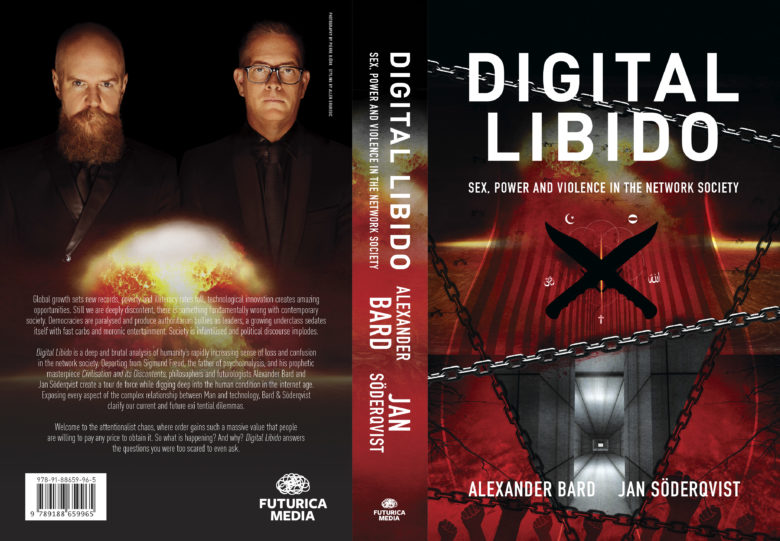
Wikipedia and open source are interesting examples. But if you look at the internet today, it is dominated by big corporations, like Facebook and Google. Could blockchain technology with its decentralized architecture be part of the solution you suggest?
You cannot create a blockchain based Facebook. That is too expensive, that will never work. The great thing with blockchains are the smart contracts. That means that I can trust people that are strangers to me, and I can arrange contracts with them. With blockchain, we can lock things in time, we can say: “This happened at a specific date, and there is no way we can change that.” But there is a lot of naivety concerning that blockchains will be the return to peer-to-peer networks. I think Wikipedia teaches a very important lesson: You can build open source platforms that are good for a lot of people. The difficult thing is to make it work. Whenever something requires a lot of resources, you have to turn it into a commercial enterprise. I was involved in that myself in Sweden, when we moved from Pirate Bay to Spotify. Spotify essentially killed Pirate Bay by employing all the programmers and finally paying them a monthly salary. The consumer experience is vastly superior to Pirate Bay.
What is your own political standpoint?
I am a Marxist libertarian, I am not a Marxist communist. I think the Communist Manifesto was a terrible book. You can blame it rather on Engels than on Marx, but Marx did sign that book. I am Marxist because I am a sociologist and a philosopher and I study society. Marx is the best tool to understand how society functions, he is fundamental to understand power structures of a society.
But when it comes to implement politics, there are limitations with Marx. A centralised socialist state will ultimately fail. You need a decentralized society to begin with, and that is closer to Anarchism than it is to Marxism. I believe that today we live in a plurarchy, with is basically anarchic, but there are nodes. Those nodes are people that other people follow online. I am one of these nodes, I´ve got 86.000 followers on Twitter. Users with that many followers are trusted more with those who just have 12 followers. So you get concentration of power in the internet world, and these nodes in turn start networks themselves. That is exactly what a Netocracy is. That is the new digital upperclass.
So, as part of this new digital upperclass, what do you suggest?
Netocracists are craving for a new libertarian utopia. It could be made available for everyone, but it takes enormous efforts, enormous amounts of education. Karl Marx was bourgouise, he was not a worker. he betrayed his own class and said that workers can be powerful. I am exactly the same way. I am a Netocrat, if I was not I would not get published, people would not listen to me, I would not go to Silicon Valley. I am honest about it. Yes, I belong to the priestly class. But as such, I am also here to educate those who are interested in a new left. So a lot more people can use the internet as a powerful tool.
You said in Alpbach that part of the solution is free WiFi for everyone to spread education. That can´t be the whole solution. Look at the gig economy, look at all these unpaid interns. They are well educated, but just get bad or unpaid jobs.
That is true. I think it needs stronger networks for people to collaborate. There was a wonderful way for people to collaborate. It was called unions. We have been fooled the last thirty years that we don´t need unions anymore. That only worked for the employers, but never for the employees. They need strong networks to negotiate their rights.
My impression is that you are very pessimistic about the network society.
No, I´m not! I always refuse to be pessimistic or optimistic. We never said the future is good or bad. We only say that the future is good for some people and for others it is not. That is historically correct. There are always winners and losers with every dramatic change in history. if you are hungry and you understand what´s going on, then you gonna be a winner. if you ignore the new technologies, if you have slow WiFi, then you gonna be left behind. History always had conflict and was bloody. We are not going to enter some kind of paradise, just because the internet has arrived and connects seven billion people on planet Earth. We are still the same tribal people that we were ten thousand years ago. So please: Let´s understand how we work. We have the data. Let´s use this data to understand ourselves before Google and Amazon do it. Then we can make technology more humane rather than let the technology dictate how we function.



